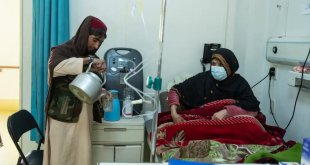AT
Kabul: Afghan journalists-in-exile have launched an independent media platform, Amu TV, to publish on-the-ground stories from Afghanistan, in hopes that safeguarding the flow of information can help save lives.
After securing grants and private donations earlier this year, they recruited fellow journalists-in-exile to work as editors and translators of reports by colleagues who were unable or unwilling to flee the country.
Even though the team did not openly advertise for the positions in Afghanistan, they were able to find journalists who were living across the country through word-of-month.
Since taking over, the Taliban has issued numerous restriction on local and foreign media such as ordering female news presenters to cover their faces and banning media that contravened “Islamic or Afghan values.”
The United Nations Assistance Mission in Afghanistan (UNAMA) stated in a June 2022 report that it has recorded 163 incidents of abuse against journalists attributable to de facto authorities, including cases of arbitrary arrest, torture and intimidation.
A survey by Reporters without Borders and the Afghan Independent Journalist Association found that 231 out of 543 media outlets had closed by December 2021, while more than 6,400 journalists lost their jobs.
At an online meeting last week, more than a dozen Amu TV reporters discussed stories such as civilian casualties in fighting between Taliban and rebels, land grabs and official corruption, flooding across the country and bumper grape harvests.
Several women are among the local staff who files reports and video footage to editors through a private portal. When filming sources, the outlet also allows interviewees to speak anonymously or off-camera.
Amu TV is set to publish video stories online and scale up towards their goal of establishing a satellite television channel, since satellite TV is currently widely available in Afghanistan.
 Afghanistan Times
Afghanistan Times




